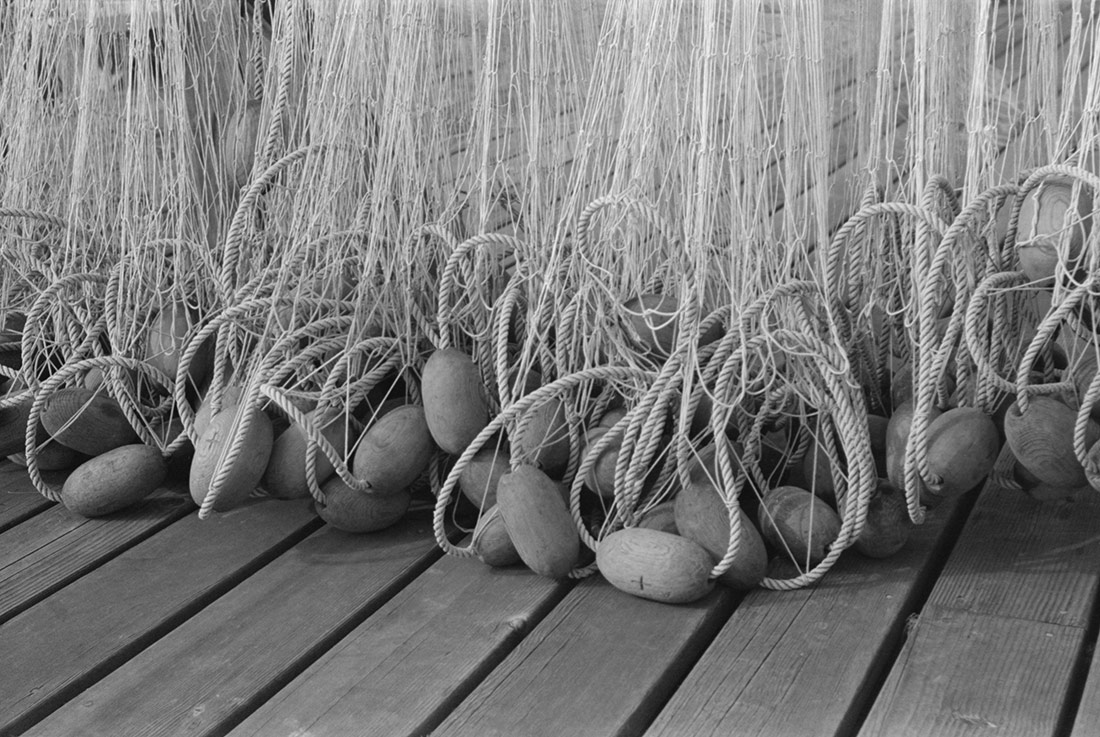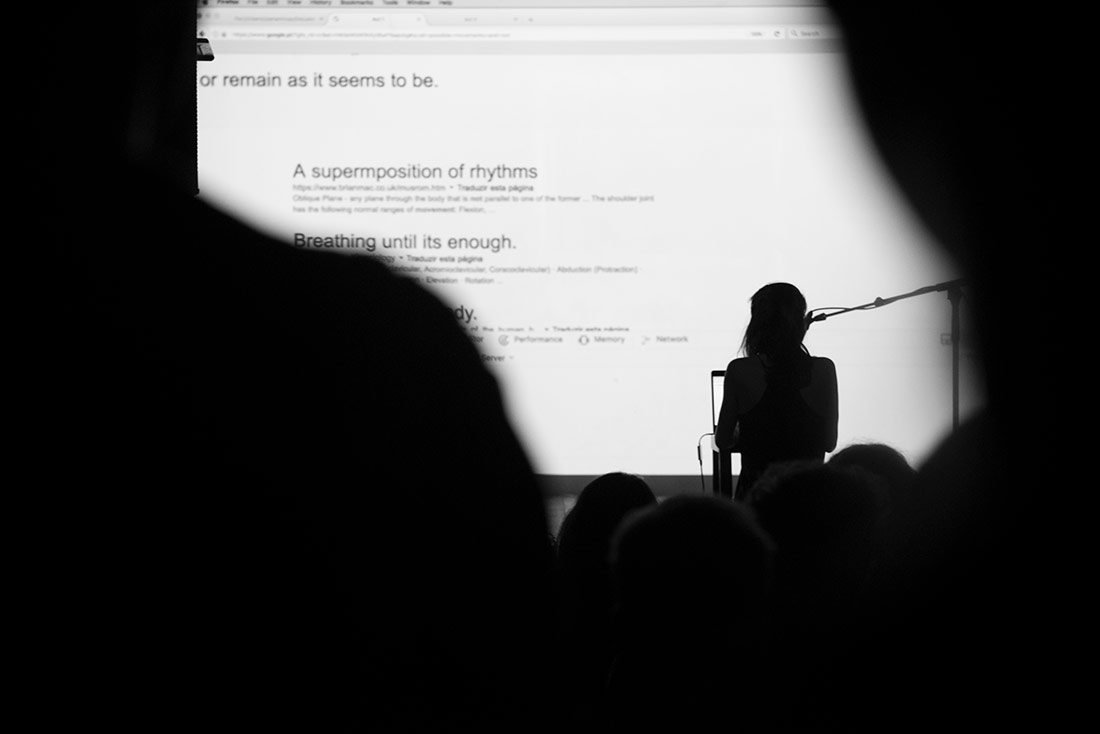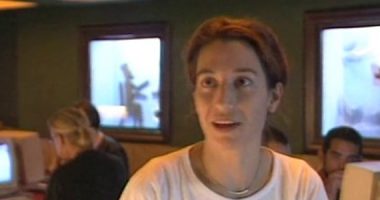
Floats on nets used in salmon fishing. Astoria, Oregon, 1941 | Library of Congress | No known copyright restrictions
What can we do, from the cultural sector, to promote an Internet that is more free, egalitarian and open? This is the question put forward by the third edition of the Cultural Innovation International Prize, with the aim of stimulating initiatives that offer critical and imaginative solutions to one of the most decisive global tools of the 21st century. The nine finalist projects are a good example of the diversity of ideas with which this challenge can be tackled.
The Mozilla Foundation recently published its Internet Health Report 2019, which is structured around five pillars (privacy and security, openness, digital inclusion, digital literacy, and decentralisation) and which draws attention to three issues (artificial intelligence, online advertising and the power of the cities). We might prefer to be unaware of large part of the report, since it ruins much of the immediate gratification that is brought by each click, the ease of which is directly proportional to the quantity of technological processes that it hides and that we often choose to ignore. But we do have options: which operator and which software to use, which security risks we are happy to accept, to what point we want to protect our privacy, whether we prefer to be transmitters or receivers, or whether we want mediated consumption. Why not talk about the physical dimension of the web – who is connected and who is not? What about the ecological footprint of each of the processes that we undertake?
In this edition of the Prize, the large number of proposals presented, their high quality and level of development are all a reflection of the relevance of the Internet on a global scale. Proof of this is the presence of initiatives that are already underway or that are designed for the long term. The proposals have been analysed by a technical committee made up of CCCB staff, with nine finalist projects selected that will go on to be evaluated by an international jury.
Nine propoposals for improving the Internet
¿A qué huele Internet?
Internet, digitality, doesn’t smell of anything. The information comes in through our eyes and ears and goes out via our hands and mouth but our sense of smell is never involved. Billions of people around the world, as they connect to the Internet, become anosmic. The project questions whether it would be possible to approach the Internet with all our senses, and if we did so, how would it be different? Can we ascribe a smell to the hundreds of events, programs and messages that are created each day on the Internet? Can we empower ourselves and create a more sensorial, less binary web, or will we have to wait for the time when machines are able to smell us in order to discover the importance of scent? The moment has come to experiment with the possibilities for communicating and expressing smells in a way that only electronic environments and the Internet ecosystem allow.
Data Corruptor
Data Corruptor is a project proposal at the intersection of art, research and technology, that questions the dynamics of appropriation and commodification of personal data in the current digital environment. It explores ways to protect or shield Internet users’ personal privacy.
It seeks to find possible ways to resist personal data tracking in digital environments, addressing the question and the possibility of resisting or defying the marketing intelligence of data engines to protect people’s basic right to privacy. By creating a network of “data corruptors”, made up of data scientists and data mining specialists among others, the aim is to explore possible futures and transfer digital privacy know-how to the common user. All for a more critical, freer, less censored, less capitalist Internet and a digital environment of emancipated and empowered users.
Entrepensar: Marató d’entrepensament situat
Entrepensar is a 12-hour marathon that combines artistic research and Responsible Research and Innovation (RRI) activities in a series of hybrid, cross-discipline workshops in which participants will work together to create a roadmap of what the Internet of the future should look like, based on shared ethical values.
Entrepensar is thus structured around two core values: one formal, which seeks to establish methods for cultural innovation; and the other relating to content, which aims to raise awareness regarding the ethical and social problems posed by digital technologies and how to resolve them.
Entrepensar proposes a methodology that – in a transdisciplinary and indisciplinary manner – combines philosophical debates, artistic practice and scientific mechanisms from which to create new shared perspectives on knowledge. A collective and inclusive form of understanding reality, situated both culturally and temporally.
Let’s Work It Out Browser
Let’s Work It Out Browser is a performative intervention that critically and playfully examines the physical and ecological impact of our browser-driven lives. Taking the structure of the Internet – domain, router, modem, data centres, servers, HTML etc., as its basis, a series of sculptural and performative elements will be created whereby the effort, sweat and toil required to browse a page is enacted. Conceived as living sculpture, classroom and workout area, Let’s Work It Out Browser is contextualised within eco-feminist calls for more earthbound approaches to living. With this in mind, the work aims to bring the cosmological and atmospheric rhetoric of the Internet back to the soil by acting as a launch pad for the “Declaration of Eco-Social Internet Futures”.
Hyperaud.io
Hyperaud.io for Schools is an initiative to promote media literacy in classrooms. A technology that puts timed transcripts centre stage, Hyperaud.io makes remixing media intuitive and fun. Media pieces can be composed by moving around a few paragraphs. Transcripts make media more accessible to those with hearing or learning difficulties, or to those with a different first language. Once audiovisual content is represented as text, we can more easily search, share and navigate it. Any mixes can be remixed and – via their transcripts – can even be automatically translated into any language for a truly global reach.
Crucially, no media is actually cut up – a mix is just a playlist of pieces of media starting and stopping at specified times – allowing the sources and context of a mix to be evaluated while preserving digital rights.
The Hyperaud.io for Schools project will build upon a working web-based prototype being actively tested in schools – teaching children to both evaluate and express themselves with audiovisual media and furnishing them with a level of media literacy as a key skill.
Plateforme Data Africa
The lack of a single interface makes it difficult to coordinate and raise the profile of projects to promote open data in Africa, as well as limiting the exploitation of such data. The Ligue Africaine des Blogueurs et Cyberactivistes pour la Démocratie (Africtivistes) proposes the creation of an African platform – www.data.africa – that would serve as a common interface, database and tool to document and communicate all projects and initiatives.
Africtivistes wishes to boost the availability of open data in order to strengthen the involvement of citizens in democratic processes. It is a pan-African organisation of bloggers and web activists that promote democratic values, human rights and good governance through the digital environment. Its objective of “consolidating democracy” is sought through strengthening real, participative democracy, cyberdemocracy, e-governance and democratic culture in each country, leading different projects aimed at citizen participation.
Verificat Participa
Verificat Participa is a laboratory for research to combat disinformation on the Internet. It seeks to experiment with ways of generating citizen participation to improve the quality of the information that can be accessed via the web by creating a collaborative fact-checking platform. The objective is that it should be citizens who, through authorised sources, databases and information from specialists, refute the rumours that flourish on the Internet. In other words, to help the consumers of disinformation themselves to feel the need and inclination to check facts.
It attempts to empower readers by forming channels for accessing public information and open data, and to create a space where sources can be shared and linked to the news stories themselves so that the collective fact-checking performed by citizens is available for society at large to browse. The synergy between readers, information and technology professionals and institutions is aimed at improving the transparency and quality of information.
Web Choreographies
Web Choreographies: Hypothesis on Agents and Agencies is a research project on the notion of interfacing, where the interface becomes a stage for the performance and performativity of its languages: acts and gestures of coding. The project aims to further the different conditions for affective interfacing of bodies and techno-ecologies and engage in a community-based process which favours open-source tools and investigation through a feminist lens in order to create a modular set of web programming and HCI resources; a new set of scripts for the emergence of common and inclusive choreographies within the digital media spheres and apparatuses at work.

Web Choreographies: Hypothesis on Agents and Agencies | Source: Ana Caria Leonor Fonseca
World Wi(l)de Web
World Wi(l)de Web is an online video game where the player firstly takes on the role of surveillance, censorship and propaganda project manager in the Cyberspace Supervision Department of a semi-authoritarian state, before going on to become Data Mining & Advanced Analytics Project Manager for a Business Intelligence and Strategic Communications company. The player manages the implementation of real tactics used to monitor, predict and influence the behaviour of Internet users, while also defending themselves from different risks (digital privacy laws, hacktivism, the media, etc.).
The project combines different narrative formats and state-of-the-art mechanics, aiming to achieve a level of realism and interactivity that will exceed the purely virtual environment of the game. In this way, the objective is to assert the great potential of games as tools for conveying knowledge and encouraging critical thinking.
Pathways and trends
Internet invades and permeates all areas of our lives, yet it takes on the appearance of something diluted or that only exists in the cloud. But in fact, the Internet is physical and has perceptible and measurable consequences in ecosystems, habits, and interpersonal relations, and it plays an important role in the construction of belief systems.
Consequently, many of the projects presented for the Prize look in depth at computational language and the technical possibilities implied by their advance; but largely they also reflect on the social, environmental and political impact of the use we make of the networks and propose alternatives practices and pathways. The overall set of projects reveal some common patterns:
- The origins of the projects reaffirm the existence of a digital resistance on a global level.
- The participating groups back international collaboration, which helps to establish bridges that foment a distributed network.
- The hybridisation of formats is a general trend and the majority of proposals back interdisciplinarity as a tool for creation and transformation.
- Collaborative processes and the use of open software and data are fundamental pillars on which to construct a free and egalitarian network.
Internet is among us and is here to stay, but the cultural initiatives and proposals presented to this call for the Cultural Innovation International Prize show us that more than one way exists to raise awareness and educate regarding its causes and, above all, of tackling its consequences. And they do so without giving in to desperation, cynicism or nihilism.




Leave a comment